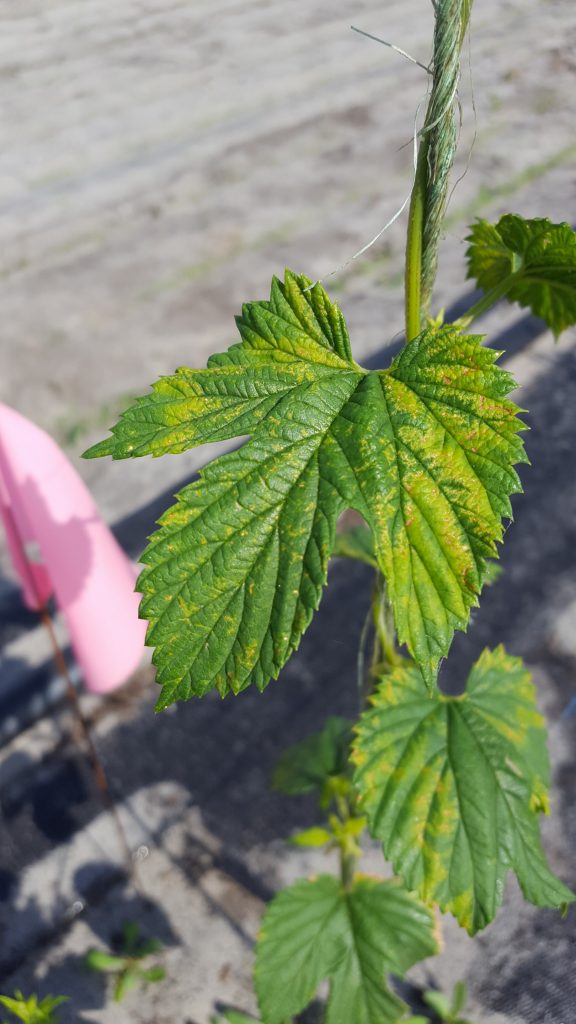By Karla Arboleda
Florida conditions can cause crops to have increased problems in comparison to other regions, and it’s no different for hops.

Microscopic nematodes are common all over the world, specifically in vegetables. Across Florida, hops growers have found root-knot nematodes in their crops. Johan Desaeger, a nematode researcher at the University of Florida Institute of Food and Agricultural Sciences, describes the problem.
“I think Florida is probably the hotspot for nematodes in the United States,” Desaeger says. “Of course nematodes like it warm, and we have our subtropical climate, but it’s also our … very sandy soils, which are very different from California.”
Desaeger warns that yellow leaves on an affected plant could lead to a mistaken nematode diagnosis.
“You’re dealing with microscopic organisms that feed below ground, so you don’t really see the pest, and the symptoms that nematodes cause above ground are very general,” Desaeger says. “(Nematode problems) can be confused with virus damage and … some people think they have a nutrient or fertility issue.”
While growers and researchers are constantly working to improve hops for the advancing craft beer industry in Florida, some varieties have already established a reputation for productivity, nematode resistance or both.
“At this point, we’re thinking Cascade and Galena seem to be the more … promising varieties in Florida,” Desaeger says. Varieties that have not performed well include Chinook, Centennial and Fuggle.
As for the future of these bitter beer beginnings, only time can tell where Desaeger’s work will take the crop.
“As we start growing more and more of it, we’ll probably see some other issues, other problems that we may have to deal with,” Desaeger predicts. “I think there’s hope. I think there’s potential, but I think it’s too early to say if this is going to be a major crop for Florida yet.”

